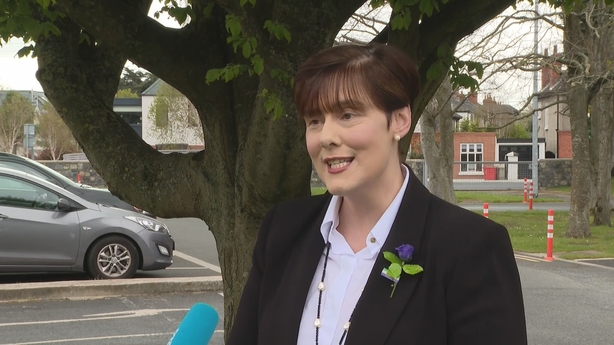A centralised admission process for post-primary schools is to be introduced in a number of high-pressure towns and suburbs across the country in time for the 2025 school year, Minister for Education Norma Foley has said.
Limerick city, and Ennis, Co Clare already operate a common application system and plans are now afoot to expand the approach to other parts of the country where there is high demand for post-primary school places.
Under this system, instead of making individual applications to several schools, parents submit one form on which they have ranked local second-level schools from a list of choices.
The schools then cooperate to allocate places.
The Department of Education has not named areas where a common application system may be introduced but they could include towns such as Greystones, Co Wicklow, and Maynooth and Celbridge in Co Kildare, where additional first year places have been created for this September.
A department spokesperson said: "It would be extremely challenging to trial a coordinated process in areas that experience a significant volume of inward and outward movement, or areas that have a large number of schools.
"These, and other factors, will be considered in identifying the relevant areas."
Ms Foley said: "We want to encourage schools in pressure zones to sign up to this. It will facilitate immediate recognition of the number of places required in an area."
The Department of Education has been examining the systems in place in Limerick city and in Ennis to see what can be learned from the experience there of a common enrolment system.
Officials acknowledge that such systems bring benefits but they also said that their operation can be challenging.

While parents fill out just one form, schools still apply their own individual enrolment policies to decide which children to accept.
The chief benefit of a centralised system is that it is easier to ensure at an early stage that all applications are accommodated.
However, some parents in Limerick complain that because they are required to rank a large number of schools on the form a child can be offered a place in a school that they actively do not want to send them to.
In Limerick, parents must list 11 schools out of a total of 17 across the city and out into the county.
It is likely that any new centralised system introduced elsewhere will comprise a much smaller grouping of schools.
Ms Foley said the department wanted to alleviate the anxiety experienced by parents, students and schools in areas where demand for school places was high.
The Department of Education uses census data and enrolment data which includes children's addresses to map and plan for future schooling needs.
It also uses a geographical information system where things like planned future residential development are tracked.
However, department officials point out that no system can provide a perfect forecast of future school needs because it is not possible to forecast the age of children in families who may move into a newly constructed house and also because people may choose to have their child educated in a school not in their immediate home vicinity.
The department implemented data-sharing arrangements between schools in high-pressure areas as part of this year's admissions process and a spokesperson said these successful arrangements would be put in place again for the 2025/26 process.
"In addition, it is intended to trial a more coordinated admissions process in a couple of areas", the spokesperson said.
The department added it will be engaging with the relevant stakeholders, including patrons and school management bodies, in the coming weeks.







